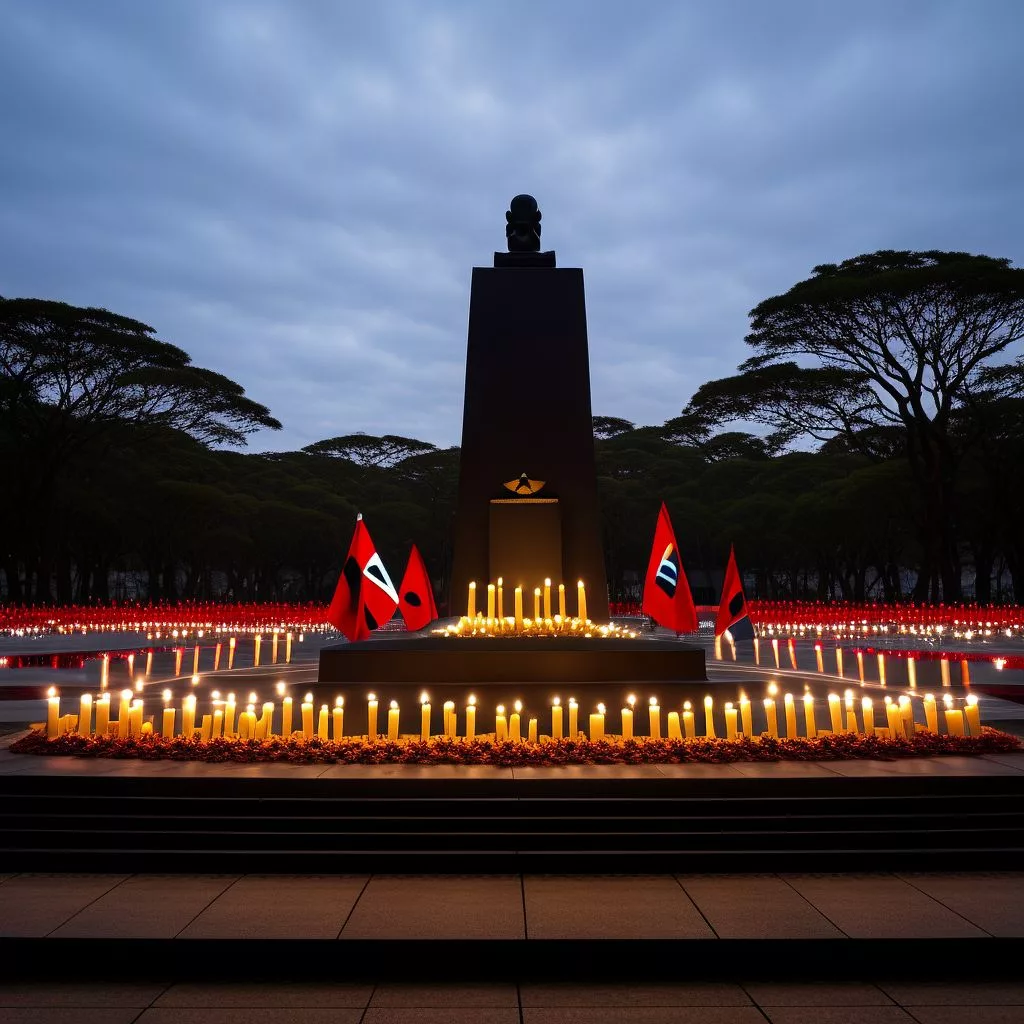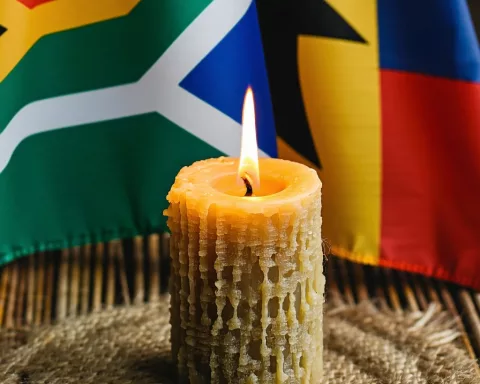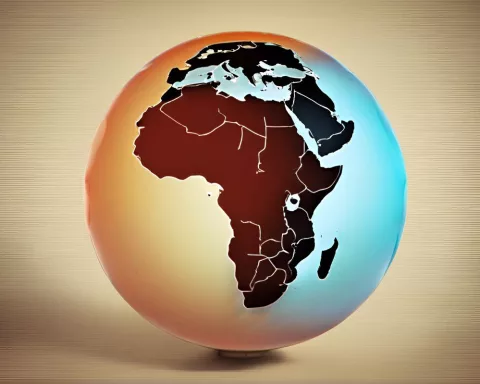At the Air Force Base Swartkop, a heartfelt ceremony paid tribute to the brave South African soldiers who gave their lives for peace in the Democratic Republic of the Congo. President Cyril Ramaphosa led the nation in mourning, honoring not just the fallen heroes but also their families and fellow soldiers. This gathering highlighted the risks of peacekeeping work and celebrated the soldiers’ courage in helping others find safety and hope. Their sacrifices remind us all of the importance of unity and cooperation in building a peaceful Africa, inspiring future generations to continue this vital mission.
Why is it important to honor fallen soldiers in peacekeeping missions?
Honoring fallen soldiers in peacekeeping missions is vital as it acknowledges their bravery, sacrifice, and commitment to global stability. This tribute serves to inspire future generations, fosters unity among nations, and reinforces the importance of international cooperation in achieving lasting peace.
Paying Tribute to Courage and Sacrifice
At the heart of the Air Force Base Swartkop in Tshwane, a solemn ceremony unfolded, uniting the nation in a collective mourning led by President Cyril Ramaphosa. The President addressed a nation in grief, lamenting the loss of South African National Defence Force (SANDF) troops who laid down their lives in the service of peace in the Eastern Democratic Republic of the Congo (DRC). The poignant event saw families, military personnel, and dignitaries gather to honor the fallen heroes, their courage immortalized in the hearts of those present.
The ceremony served as a stark reminder of the risks inherent in peacekeeping operations within volatile regions. South Africa, actively engaged in the Southern African Development Community (SADC) Mission and the United Nations Stabilization Mission in the DRC, remains steadfast in its commitment to supporting conflict resolution efforts. The ultimate sacrifices made by these soldiers underscore the perilous yet vital nature of peacekeeping, highlighting the unwavering pursuit of a stable and peaceful Africa.
President Ramaphosa extended heartfelt condolences to the grieving families and shared his deep sympathy not only with South African soldiers but also with those from Tanzania and Malawi who perished in the line of duty. He acknowledged the collaborative spirit demonstrated by the Ugandan government and the SADC community during these trying times, emphasizing the unity and resilience of African nations when faced with adversity.
The Legacy of Bravery and Unity
In his address, President Ramaphosa celebrated the valor and dedication of SANDF soldiers, whose mission transcended the mere maintenance of order. Their endeavors aimed to bridge divides and foster understanding, responding to the Congolese people’s plea for protection and an end to the ceaseless conflict. The soldiers’ courage and steadfast commitment to peace exemplify the core values of the SANDF.
Reflecting on their sacrifice, President Ramaphosa invoked the powerful words of S.E.K. Mqhayi, a revered poet, to console the bereaved families. Mqhayi’s poem, “The Sinking of the Mendi,” eloquently captures the essence of sacrifice for the greater good, serving as an apt tribute to the soldiers who gave their lives for peace. Their legacy of heroism embodies a commitment to the vision of an Africa free from war and poverty.
Despite immense logistical challenges, the Ministry of Defence and SANDF leadership, in collaboration with international partners like the United Nations, ensured the dignified repatriation of the fallen soldiers’ remains. This collective effort symbolizes a resolute determination to honor those who serve in the world’s most challenging environments, reflecting a shared commitment to their memory.
A Commitment to Peace and Ubuntu
South Africa’s military tradition is deeply intertwined with its historical and cultural narratives. The country’s involvement in peacekeeping missions reflects an unwavering dedication to the African ethos of Ubuntu, a belief in the universal bond connecting all humanity. This philosophy underscores South Africa’s commitment to assisting its neighbors in achieving stability and peace.
In his remarks, President Ramaphosa articulated that the ultimate tribute to these fallen heroes is the ongoing quest for a continent devoid of conflict and underdevelopment. This vision aligns with the aspirations of post-colonial African leaders who envisioned a united, prosperous Africa. As the continent grapples with the remnants of colonial legacies manifesting as political instability and economic hardship, this vision remains profoundly relevant.
The soldiers who lost their lives in the DRC are honored not only for their bravery but for their participation in a broader narrative that seeks to redefine Africa’s place on the global stage. Their sacrifice underscores the critical importance of international cooperation in addressing regional conflicts, calling for renewed efforts in diplomacy and dialogue to encourage all parties involved in the DRC conflict to seek peaceful resolutions.
A Unified Call for Lasting Peace
The ceremony at Air Force Base Swartkop transcended a mere memorial service; it was a reaffirmation of commitment to peace and stability. Diverse voices converged in a unified call for action, highlighting the necessity of a concerted effort to bring lasting peace to the DRC and beyond.
Ultimately, the memorial ceremony served as a poignant reminder of the human cost of conflict and the enduring commitment to peace and unity. The sacrifices of the SANDF soldiers are etched into history, with their legacy continuing to inspire those who strive for a better, more peaceful Africa. Through their actions, these soldiers have contributed to a larger narrative of hope and resilience, reinforcing the belief that peace is an achievable ideal, even in the face of adversity.
Frequently Asked Questions (FAQ)
Why was the ceremony held at Air Force Base Swartkop important?
The ceremony at Air Force Base Swartkop was significant as it honored the bravery and sacrifice of South African soldiers who lost their lives in peacekeeping missions in the Democratic Republic of the Congo. It served as a moment for national unity, mourning, and reflection on the importance of peacekeeping efforts.
Who led the ceremony and what message did he convey?
President Cyril Ramaphosa led the ceremony, where he expressed deep condolences to the grieving families of the fallen soldiers. He emphasized the courage of the South African National Defence Force (SANDF) troops and reiterated the importance of international cooperation and unity among African nations in achieving lasting peace.
What role does South Africa play in peacekeeping missions?
South Africa is actively involved in peacekeeping efforts through its participation in the Southern African Development Community (SADC) Mission and the United Nations Stabilization Mission in the Democratic Republic of the Congo. This involvement showcases South Africa’s commitment to conflict resolution and stability in the region.
How does the legacy of these fallen soldiers inspire future generations?
The legacy of the fallen soldiers serves as a powerful reminder of the values of bravery, sacrifice, and commitment to peace. Their actions inspire future generations to engage in peacebuilding efforts, fostering a culture of unity and cooperation across Africa.
What is the significance of the term “Ubuntu” in relation to South Africa’s peacekeeping efforts?
“Ubuntu” is a philosophy that emphasizes the interconnectedness of all humanity. It underlines South Africa’s commitment to assisting its neighbors in achieving stability and peace, reflecting a shared belief in community and collective responsibility.
How can the sacrifices of these soldiers contribute to a peaceful Africa?
The sacrifices made by these soldiers highlight the human cost of conflict and the necessity of dedicated efforts towards peace. Their legacy continues to inspire dialogue, diplomacy, and cooperation among nations, reinforcing the notion that a peaceful Africa is achievable through unity and collective action.












